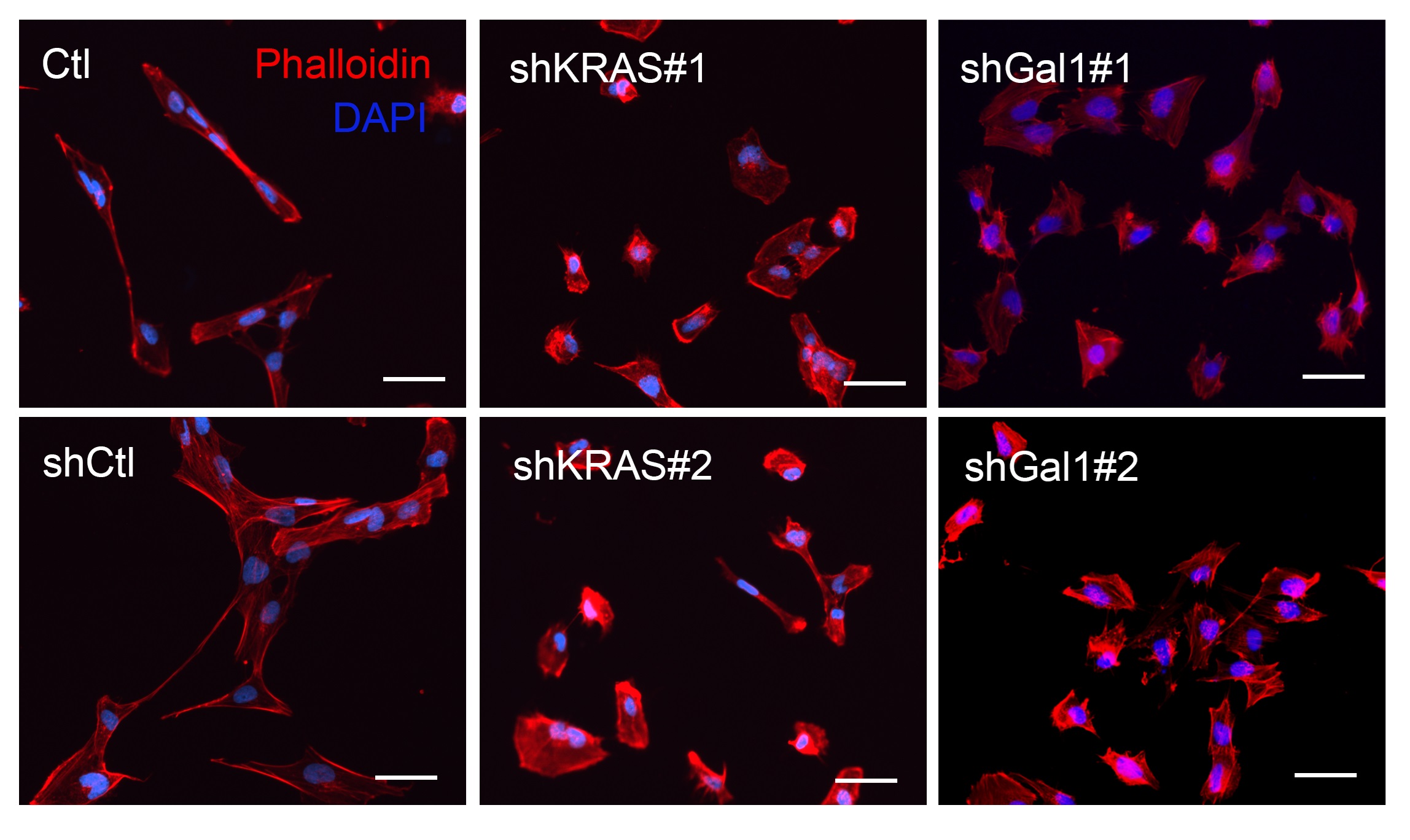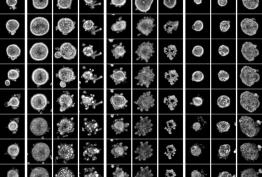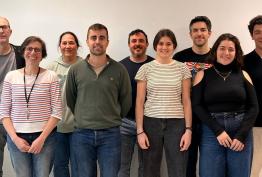A study by researchers from the IIBB-CSIC-IDIBAPS, the Hospital del Mar Research Institute, the Mayo Clinic, the IBYME (CONICET) and the CaixaResearch Institute demonstrates the role of the Galectin-1 protein in the nucleus of the cells that surround the tumor, the fibroblasts, contributing to their activation
Pancreatic cancer is one of the most aggressive and with one of the lowest survival rates, of only 10% after five years. One of the factors that contributes to this aggressiveness is its tumor microenvironment, known as stroma, which represents most of the tumor and is formed by a network of proteins and different non-tumor cells. Among these, fibroblasts play a key role, as they help tumor cells grow and increase their resistance to drugs. Now, a study led by researchers from the IIBB-CSIC-IDIBAPS, the Hospital del Mar Research Institute, the Mayo Clinic, the Institute of Biology and Experimental Medicine (CONICET, Argentina) and the CaixaResearch Institute, has identified a new determining factor that affects this characteristic of pancreatic cancer, a previously unknown function of the Galectin-1 protein within the nucleus of fibroblasts. This discovery, published in the journal PNAS, provides new clues to better understand the role of these cells in the progression of pancreatic cancer. Until now, it had been identified that fibroblasts secreted Galectin-1, a protein with pro-tumor properties. Now, however, this study shows that this molecule is also found inside fibroblasts, specifically in the nucleus, where it plays a key role in controlling gene expression.
The presence of this molecule activates fibroblasts, so that they collaborate with the development of tumor cells. In addition, researchers have discovered how Galectin-1 has the ability to regulate the gene expression of these cells at a very specific level without modifying the DNA sequence, through epigenetic control. One of the genes on which it acts is KRAS, which plays a fundamental role in pancreatic tumors. This gene is also found in the tumor cells of 90% of patients, but in this case, it is mutated. It is considered one of the main responsible for its uncontrolled growth and the aggressiveness of the tumor.
To carry out this study, researchers have worked with samples from patients with pancreatic cancer, which have allowed them to analyze the presence and function of Galectin-1 in the nucleus of fibroblasts. In addition, they have carried out in vitro experiments with human fibroblast cell lines, where they have investigated the effects of inhibiting both the protein and the KRAS gene, observing a deactivation of these cells. This would prevent the collaboration of fibroblasts with tumor cells.
Vinaixa J, Martínez-Bosch N, Gibert J, Manero-Rupérez N, Santofimia-Castaño P, Baudou FG, Vera RE, Pease DR, Iglesias M, Sen S, Wang X, Almada LL, Marks DL, Moreno M, Iovanna JL, Rabinovich GA*, Fernandez-Zapico ME*, Navarro P.* Nuclear Galectin-1 promotes KRAS-dependent activation of pancreatic cancer stellate cells. Proc Natl Acad Sci U S A. 2025 Apr 8;122(14):e2424051122. doi: 10.1073/pnas.2424051122. Epub 2025 Apr 2. PMID: 40172967







